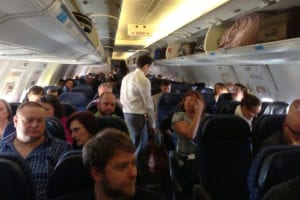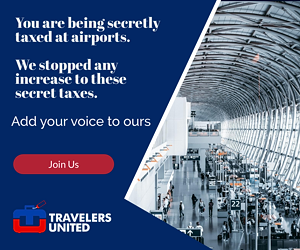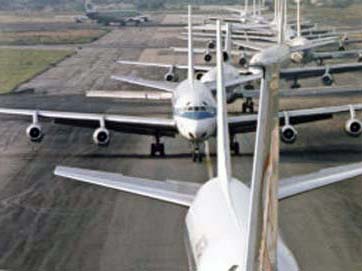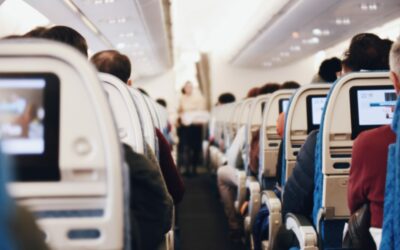Airline sick-passenger rules allow diseases to spread
 Airline sick passenger rules force many sick passengers (even with doctor notes) to fly and allow the spread of contagious diseases. We need some common sense. And, some new, clear rules and procedures for controlling those with communicable diseases from flying.
Airline sick passenger rules force many sick passengers (even with doctor notes) to fly and allow the spread of contagious diseases. We need some common sense. And, some new, clear rules and procedures for controlling those with communicable diseases from flying.
The sick passenger rule is only one of the issues that has been postponed. This column deals with these regulations.
There are no promises, but we know that consumers still have time to get their voices heard.
Several months ago, the Department of Transportation (DOT) held an open hearing on whether passengers can assess their contagiousness. The airlines and IATA (International Air Travel Association) were against allowing passengers to assess whether they are contagious. Consumer groups, including Travelers United, asked for new rules.
The sick passenger rule has been an issue for years, but the recent pandemic showed its necessity.
Airlines and thousands of passengers suffered severe delays because of the coronavirus-induced pandemic. These regulations have been discussed during the recent pandemic. Efforts to spot passengers through testing with the virus were rampant. This pandemic highlighted the airline’s practice of not having workable rules to deal with sick passengers. This is the last time, realistically, that those favoring implementing a sick passenger rule can get such a rule added to this FAA funding bill.
The airline sick passenger rules affected me personally several years ago.
 I was diagnosed with pneumonia just before getting ready to fly back to the US. I asked Delta Air Lines whether I could fly three days later because I was suffering from pneumonia. They answered, “Of course, but it will cost you.” I had a doctor’s note, hospital records, and x-rays to show my condition. I was told that if I did not use my ticket, I would be charged a $300 change fee and would have to pay the full fare for my return flight rather than my discounted ticket. NOTE: Currently, many change fees have been eliminated for all but basic economy tickets and many international flights. But the rules are not followed by all airlines.
I was diagnosed with pneumonia just before getting ready to fly back to the US. I asked Delta Air Lines whether I could fly three days later because I was suffering from pneumonia. They answered, “Of course, but it will cost you.” I had a doctor’s note, hospital records, and x-rays to show my condition. I was told that if I did not use my ticket, I would be charged a $300 change fee and would have to pay the full fare for my return flight rather than my discounted ticket. NOTE: Currently, many change fees have been eliminated for all but basic economy tickets and many international flights. But the rules are not followed by all airlines.
Even without the change fee the cost of staying in Europe another week and getting my strength back in a B&B was exorbitant. After the fact, I learned that my health insurance may have covered some of the expenses.
The flight change was far more expensive than I was willing to pay. However, I was ready to pay for my costs in Madrid for a small hotel and meals. But, Delta was not budging on its demand to extract extra money from me to stay in Madrid for another three days. Delta airline’s sick passenger rules forced me to fly. Interestingly, the Delta crew could have refused to allow me on the plane, though I had a doctor’s note, three-day-old x-rays, and the hospital report had no influence.
Center for Disease Control recommends those with the flu avoid travel for 24 hours after the fever is gone
The CDC recommends “people sick with flu stay home and avoid travel for at least 24 hours after their fever is gone.” However, airlines will charge passengers to do that. Until the middle of the COVID-19 pandemic, passengers had to pay a whopping cancellation fee. Plus, airlines will then charge passengers the last-minute airfares. Those can add hundreds of dollars to sick passenger expenses.
The World Health Organization rules for travelers with medical conditions.
Airlines can make medical decisions about which passengers to allow onboard flights. However, doctors are not allowed to stop passengers from flying. This is genuinely an upside-down world.
Airlines have the right to refuse to carry passengers with conditions that may worsen. If the crew believes a passenger may have serious consequences during the flight, the passenger can be stopped. They may require medical clearance from their medical department/adviser if there is an indication that a passenger could be suffering from any disease or physical or mental condition that:
- may be considered a potential hazard to the safety of the aircraft;
- adversely affects the welfare and comfort of the other passengers and/or crew members;
- requires medical attention and/or special equipment during the flight;
- may be aggravated by the flight.
If cabin crew suspects before departure that a passenger may be ill, the aircraft’s captain will be informed and a decision made as to whether the passenger is fit to travel, needs medical attention or presents a danger to other passengers and crew or to the safety of the aircraft.
It is time that airlines allow passengers with legitimate illnesses to postpone flights without cost.
It is far better for passengers, the crew, and the airline to permit sick passengers to change flights. This will stop them from infecting other passengers. Perhaps the COVID virus will cause the FAA and CDC to develop new rules.

READ ALSO:
How to avoid passing out at 35,000 feet
Important ways DOT should help passengers like you

Charlie Leocha is the President of Travelers United. He has been working in Washington, DC, for the past 14 years with Congress, the Department of Transportation, and industry stakeholders on travel issues. He was the first consumer representative to the Advisory Committee for Aviation Consumer Protections appointed by the Secretary of Transportation from 2012 through 2018.



